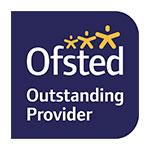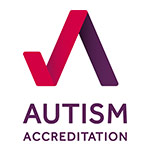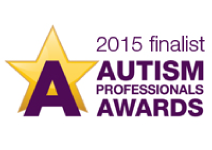Communication - English
‘Communication - English’ is an important area of the school curriculum.
It is composed of several different areas: receptive and expressive communication skills, reading and writing. We have a team of highly skilled and trained staff who support pupils throughout the school with complex communication difficulties.
Communication
Aims and ambitions of the Communication Curriculum
We enable our pupils to develop their social communication and emotional regulation skills, vital to their engagement in all other areas of learning. Our Communication Curriculum is thoughtfully threaded everywhere and into everything our pupils experience, in all areas of our school curriculum. Through consistent, quality staff practice, implementation of research-based interventions and the provision of ‘communication friendly environments’ we support our pupils to become confident, competent communicators at their appropriate developmental level.
What do pupils learn through the Communication Curriculum?
The motivation of this curriculum is the development of social and emotional engagement, of non-verbal, spontaneous communication and strategies to remain well-regulated. Through the use of use of strategies such as Intensive Interaction, pupils learn the ‘fundamentals of communication’, developing their very early receptive and expressive communication skills. Skills such as sharing attention with another person and learning to play are high priorities. In addition, we help our pupils to explore different, personalised ways to remain well regulated and available to learn.
Pupils gain a greater understanding of the world around them through the use of structure and visual supports across all environments and activities, further enhancing their receptive communication and independence. Visual supports such as objects of reference, now & next and individual timetables are used consistently to help our pupils learn what is happening and what is expected of them.
A range of communication strategies are used within school to promote expressive communication. From ‘low tech’ options such as choice boards and core vocab boards, to ‘high tech’ systems in communication apps on devices, our pupils learn to navigate a system appropriate for them.
Why the Communication Curriculum is important
As a school, we value communication as the most important of all life skills. Communication skills allow us to interact and, in turn, inspire the creation of meaningful, trusting relationships. Our Communication Curriculum keeps these fundamental skills at the heart of learning. With the ability to understand the world, express themselves and remain emotionally regulated, our pupils engage in learning and enjoy the experiences we can offer them.
Cherish Saltan
English
Aims and ambition of the English curriculum
Our aim for the English curriculum is to build our pupils’ communication, reading, fine motor and writing skills to allow them to be as independent as possible. We aim for our pupils to enjoy reading for pleasure and to develop functional literacy to help them to communicate in the community.
What do pupils learn about in the English curriculum?
Pupils are taught pre and early reading skills using a range of strategies including reading recovery (promoting eye-tracking and physical movement and co-ordination), Phase 1 phonics and phonological awareness. As reading skills become established, pupils have access to more structured reading programmes such as Rocket Phonics and guided reading sessions. Pupils are encouraged to use these skills to seek out information, extend their comprehension skills and to read for pleasure. For some pupils with autism who cannot talk, structured reading activities are developed that allow success in this area. Alongside this, we also aim to foster a love of reading throughout school. We explore this through daily 1:1 reading, class story time, sensory stories within English lessons and engaging reading areas in each classroom.
Alongside the development of language and reading skills, pupils are encouraged to develop writing skills. In terms of handwriting, a specialist writing programme has been developed alongside a sensory OT to support pupils with additional needs to develop their hand-writing skills. For some pupils, hand-writing may not be possible due to their physical difficulties. For these pupils, opportunities to develop their writing through IT aids are explored.
Why the English curriculum is important
The English curriculum is important because it provides our pupils with real-life skills to be as independent as possible and to support their transition to adulthood. It helps our pupils to interact and communicate with others, to use functional literacy and to help them to read; from interacting with a story to those who can read independently.
Sarah Gath-Richardson










